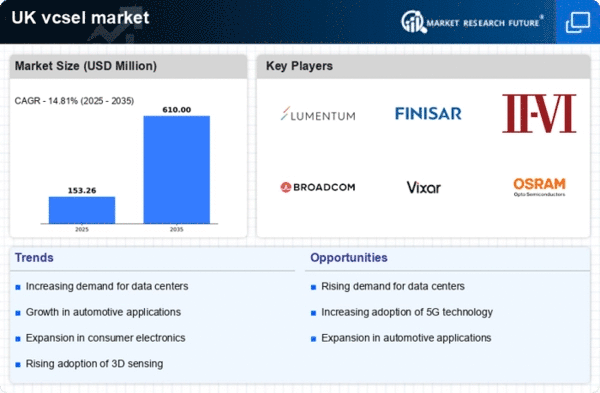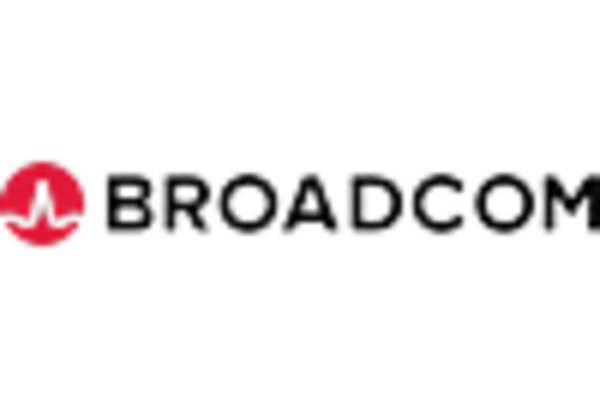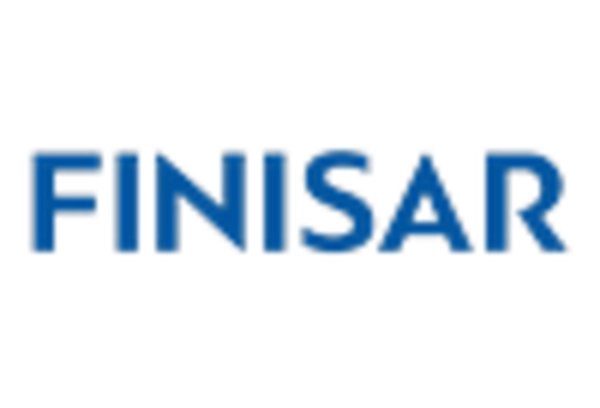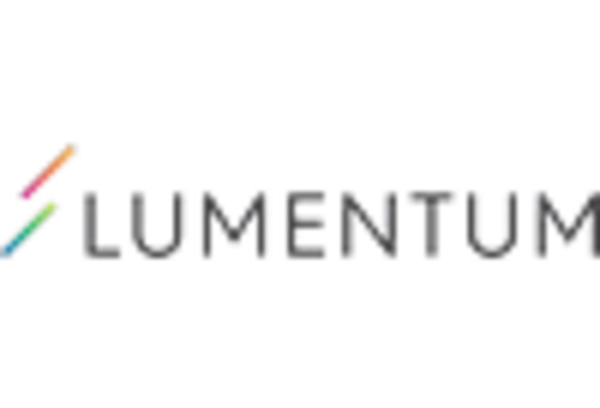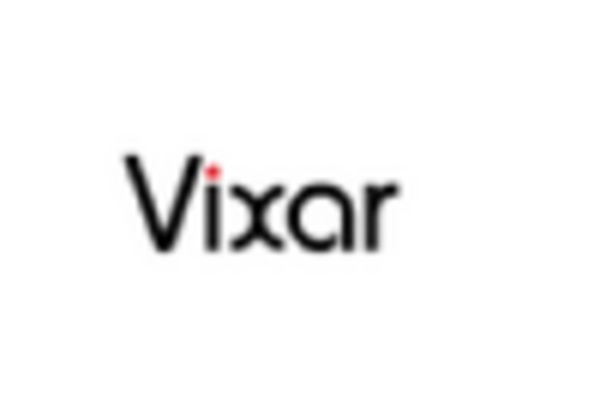Expansion of Data Centres
The expansion of data centres in the UK is a significant driver for the vcsel market. As businesses increasingly rely on cloud computing and data storage solutions, the demand for high-speed data transmission is growing. VCSELs are essential for optical interconnects within data centres, providing the necessary speed and efficiency for data transfer. The UK data centre market is projected to grow at a CAGR of 8% over the next five years, driven by the increasing need for data processing and storage capabilities. This growth is likely to create substantial opportunities for VCSEL manufacturers, as data centres seek to enhance their infrastructure with advanced optical technologies. Consequently, the vcsel market is poised to benefit from this trend, as the demand for high-performance optical components continues to rise.
Emergence of IoT Solutions
The rise of Internet of Things (IoT) solutions in the UK is significantly influencing the vcsel market. As more devices become interconnected, the need for efficient data transmission and communication technologies is paramount. VCSELs are well-suited for IoT applications due to their low power consumption and high-speed capabilities. The UK IoT market is projected to grow to £30 billion by 2025, driven by advancements in smart home technologies, industrial automation, and smart city initiatives. This growth is likely to create a substantial demand for VCSELs, as they are integral to the functioning of various IoT devices. Consequently, the vcsel market is expected to benefit from the increasing adoption of IoT solutions across multiple sectors.
Growth in Consumer Electronics
The consumer electronics sector in the UK is experiencing robust growth, which is positively impacting the vcsel market. With the rising popularity of smart devices, including smartphones, tablets, and wearables, the demand for advanced optical components is on the rise. VCSELs are increasingly being used in applications such as facial recognition, augmented reality, and gesture control, enhancing user experience. According to recent estimates, the UK consumer electronics market is projected to reach £30 billion by 2026, indicating a compound annual growth rate (CAGR) of approximately 5%. This growth is likely to drive the demand for VCSELs, as manufacturers seek to incorporate cutting-edge technology into their products. As a result, the vcsel market is expected to benefit from the increasing integration of these components in consumer electronics.
Rising Adoption of 5G Technology
The ongoing rollout of 5G technology in the UK is driving the vcsel market. As telecommunications companies upgrade their infrastructure to support higher data rates and lower latency, the demand for vertical-cavity surface-emitting lasers (VCSELs) is expected to increase. VCSELs are integral to optical communication systems, which are essential for 5G networks. The UK government has invested heavily in 5G initiatives, with an estimated £1.5 billion allocated to enhance connectivity. This investment is likely to stimulate growth in the vcsel market, as these components are crucial for enabling faster and more efficient data transmission. Furthermore, the increasing number of connected devices in the UK is anticipated to further boost the demand for VCSELs, as they play a vital role in supporting the infrastructure needed for 5G applications.
Increased Focus on Automotive Applications
The automotive industry in the UK is undergoing a transformation, with a growing emphasis on advanced driver-assistance systems (ADAS) and autonomous vehicles. This shift is driving the demand for VCSELs, which are used in various applications such as LiDAR systems and in-cabin sensing technologies. The UK automotive market is expected to reach £82 billion by 2025, with a significant portion of this growth attributed to the integration of advanced technologies. As manufacturers strive to enhance vehicle safety and user experience, the vcsel market is likely to see increased demand for these components. The potential for VCSELs in automotive applications suggests a promising future for the market, as the industry continues to innovate and adopt new technologies.

